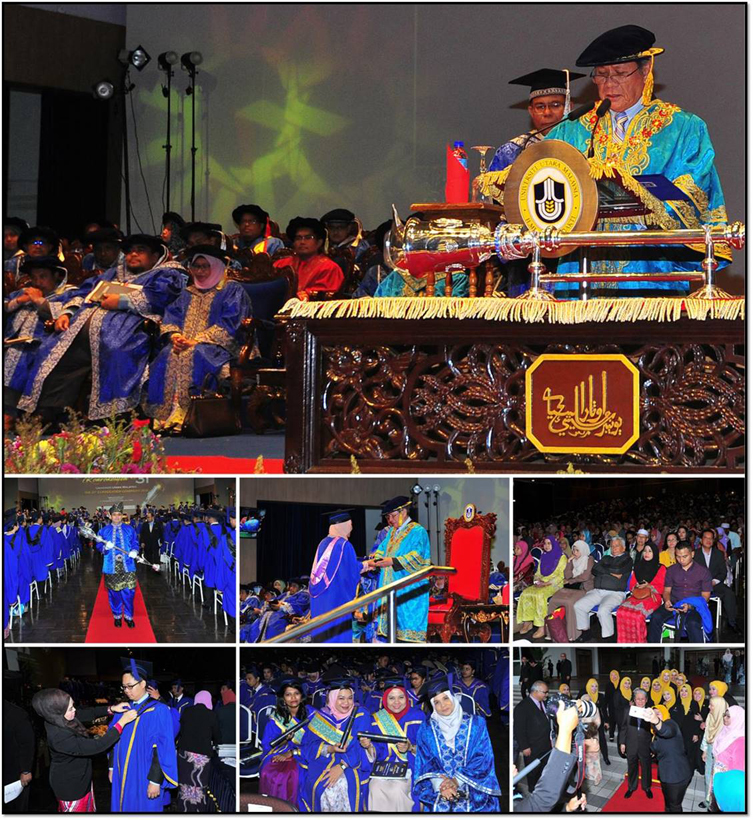Universiti Utara Malaysia (UUM) graduates were told that task and the responsibility of seeking knowledge do not end on their day of graduation.
UUM Pro-Chancellor, Tun Dato' Sri (Dr.) Ahmad Fairuz Dato' Sheikh Abdul Halim said that as individuals, it is their responsibility to continue to pursue knowledge and more importantly, to implement what has been learnt for the benefit of universal community.
According to him, in Malay epic stories, knowledge seeking has always been a priority, for example in ancient times knowledge was sought through mentoring quests and meditation in caves as well as masters were also invited to teach the aristocrats in the palace.
He said the demands for knowledge seeking continued until such figures as Tun Seri Lanang, Munshi Abdullah, Al-Sheikh Al-Adib Ahmad Zain Al-Fatani, Hamzah Fansuri, Shamsuddin Al-Sumatrani and Sheikh Nuruddin Al-Raniri contributed much in developing the tradition of knowledge in the Malay world.
"Today, all graduates have succeeded in pursuing the path of exploring knowledge in more formal and structured forms, however, the struggle to pursue this knowledge tradition should not just end here today.
"The knowledge sought ought to be practiced and those who do not practice the knowledge gained, will be a waste similar to that of dense trees, but not fruitful," he said at the last session of UUM's 31st Convocation Ceremony at Mu'adzam Shah Hall.
Pro-Chancellor said that the knowledge that can be practiced is knowledge learned with reason and heart, united in the soul and behaviour and can be beneficial to the life of the society as a whole.
According to him, to enable the learnt knowledge be practiced, graduates should engage in various community activities or community engagement.
He further reiterated that engagement in the community is a collaborative process with individuals or groups of the community that traversed geographical factors, interests and situations in dealing with issues related to the well-being of the community.
"It is a great mechanism that is capable of bringing about changes and enhancing the well-being of the community and serves as a catalyst for cooperation between members of the community in policy research and development.
He said, with knowledge, life would be easier and with religion, life would be more direct.
The ninth session which was also the last session saw presentation of degrees to 773 graduates comprising students of the Distance Education (PJJ) programme and students from collaborative programmes under the auspices of the Professional and Continuing Education Centre (PACE) and UUMKL.


